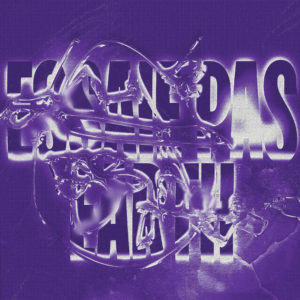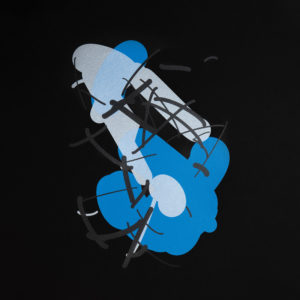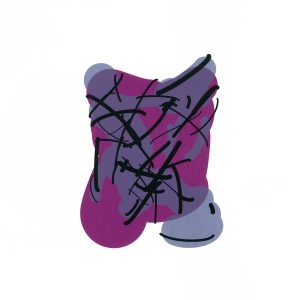Our interview With Slim Twig

Slim Twig is the pseudonym of musician, actor, and all around artistic visionary Max Turnbull. A Hound at the Hem, his latest release, is laden with the cinematic elements and layered tones that make this album feel less like separate tracks of music and more of an all encompassing artistic experience. We caught up with Slim Twig about his literary inspiration for the album, the decision to re-release his work on a different label, and the thought that goes into the making of a dynamic masterpiece.
NT: First things first: from start of “Heavy Splendor” to the last second of “Blonde Ascending (Come Into The Clatter),” there are undeniably cinematic elements incorporated into the songs. What do you use in your music to highlight the feeling of film?
ST: My music is an attempt to make records that have a particular feel about them. Convincing creations can evoke alternate realities, particular worlds only experienced in their representation. I think this idea of trying to create worlds of one’s own within their work is a language more common to film, but is something I try to be conscious of when making a record (hopefully somewhat successfully). I can’t say anything is ‘used’ more specifically than my imagination.
NT: You’ve said that A Hound at the Hem is loosely inspired by Lolita. How do literary influences transfer musically? What are some specific moments on the album that are direct references to the book?
ST: The album is based on Lolita in the sense that I adapted certain characters, dynamics, and themes from the novel to my own language and story. This was cheating in a sense. I had the ambition to make a narrative album, and so, rather than bite off more than I could chew, I used the existing story’s dynamic as something of an artistic aid to spring from.
NT: Why was Lolita your book of choice for the album inspiration?
ST: There was no short list. I was inspired directly as of reading the book. That feeling sat with me for a couple years until I made the album.
NT: When so much of this album contains outside influence, how do you find a good balance of tribute and original ideas while composing?
ST: My album isn’t any more of a tribute to other works than anyone else’s records made these days. I’ve just been upfront about specific inspirations in this instance as it lends the making of the album something of a narrative for people to write about. All attempts at music making signify and make reference to past works. New strains of sound are created in this way, by paying tribute to previously exclusive strains and recording the reaction. Though I try not to think of culture in strictly hierarchical terms, I do hope that my album can stand as its own creation woven in among the others.
NT: Is there a concerted theme of the album? Would you call it a concept album?
ST: I’ve been calling it a narrative album, but I suppose that sounds no less pretentious to certain people. The songs are all sung from the same first person perspective, and there’s a story in there if people decide to go looking for it. They don’t have to find it to enjoy the music.
NT: Owen Pallett wrote the string arrangements featured on this album. How did you work together to come up with arrangements that represented the album’s concepts?
ST: I’ve known Owen from coming of age in the Toronto music scene, and had long wanted to work with him. I wrote all the music with the intention of adding an orchestral element, and was very lucky Owen agreed to the collaboration. We corresponded a little, and I had one session with him before he composed the string arrangements. It was pretty informal. I was very happy to have him do his thing.
NT: You previously released A Hound at the Hem on your own label Calico Corp and Pleasence Records. What made you want to release the album again? Why DFA?
ST: The question should be: “why Slim Twig?”. I had no label interest in the album once it was completed, and it was only through getting in touch with my friends at Pleasence that it came out in the first place. If that original pressing hadn’t been released, DFA wouldn’t have heard it, and now hopefully other people as well.
NT: You self-produced the album back in 2010. Was that your choice or situational? What do you think it added to the album?
ST: It was both. I had the opportunity to live in a recording studio on an island for very little money. I wanted to get better at writing and recording music, and having no distractions for an extended period at that time in my life probably turned me onto a producer’s mindset. The record’s essence is due to the choice of self-producing. I did it all, so I know now the aspects I am good at or enjoy. The other aspects benefit from collaboration.
NT: What are five albums that are really inspiring you these days?
ST: Loaded by Velvet Underground. UnonoU by Danava. Uncle Meat by Mothers Of Invention. Get Up With It by Miles Davis. Accelerator by Royal Trux.
Latest Reviews
Trending
Tracks
Advertisement
Looking for something new to listen to?
Sign up to our all-new newsletter for top-notch reviews, news, videos and playlists.









